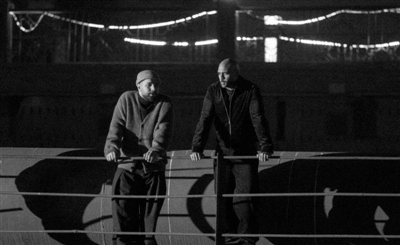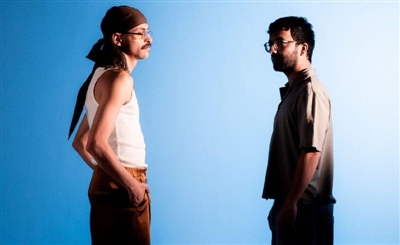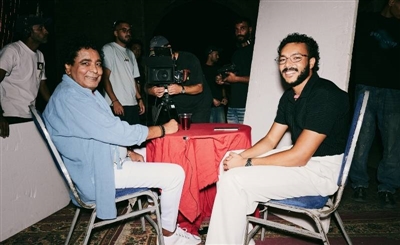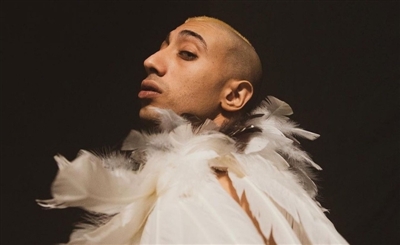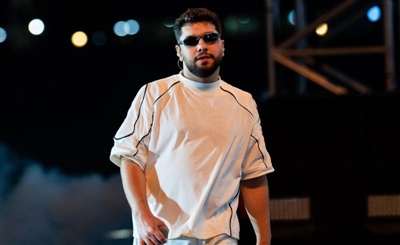German Techno Giant Innellea on Bringing 'The Belonging' to MENA
As he prepares to unveil his new album ‘The Belonging’, SceneNoise speaks with German DJ Innellea about his next album tour.
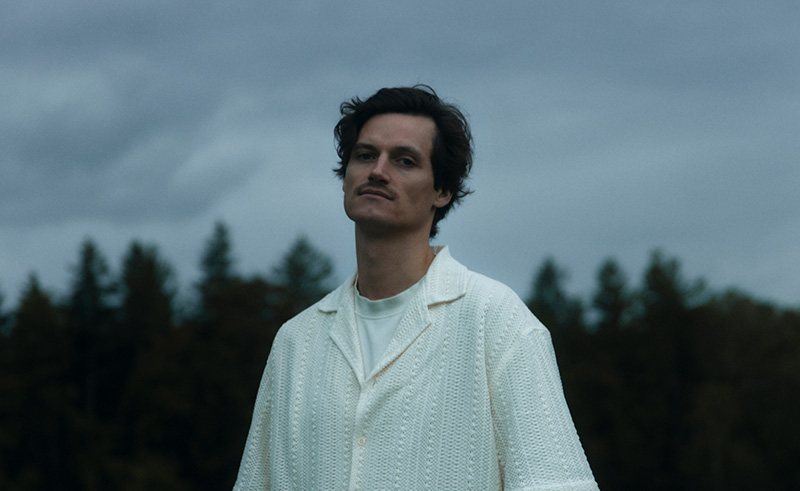
Melodic, apocalyptic and cinematic. These are only a few adjectives to describe the sonic magnitude exuding from Munich-based producer and DJ Innellea’s music.
Emerging on the scene in 2018, Innellea quickly found his way onto world-class labels like Afterlife, Innervisions and Diynamic, joining the likes of industry giants such as Tale of Us, Jimi Jules, Afterlife and Colyn. Early tracks such as ‘Vigilans’ and ‘Forced to Bend’ were true career propellers, setting him apart through his unique blend of progressive house and percussive abstract techno. Today, Innellea’s music has touched almost every corner of the world.
-87e1019c-1448-475d-94f7-89cf667e85b5.jpg) Embarking on his global album tour, ‘The Belonging’, the producer will also touch down in cities across the MENAT region such as Istanbul and Dubai, as well as Cairo’s Mohammed Ali Palace on February 9th.
Embarking on his global album tour, ‘The Belonging’, the producer will also touch down in cities across the MENAT region such as Istanbul and Dubai, as well as Cairo’s Mohammed Ali Palace on February 9th.
In this exclusive SceneNoise interview, Innellea shares insights on his global tour as well as his upcoming album release, ‘The Belonging’, dropping on February 9th…
-3e6ee8bd-68f8-476a-8723-97294f9ee56b.jpg) How did growing up in Munich influence your musical style? Are there specific elements of the city that became a source of creative inspiration?
How did growing up in Munich influence your musical style? Are there specific elements of the city that became a source of creative inspiration?
As Munich is only a few kilometers away from my hometown, I was always very close to my family and my closest friends. This has always given me a sense of stability and is reflected in my music in the form of self-confidence, I would say.
Could you share the story of how you ventured into music production?
When I was about 18, I went to a Boys Noize concert here in Munich. I was immediately hooked and somehow wanted to be part of this world. So the next morning I bought my first cheap DJ controller, which was soon replaced by vinyls and turntables.
Reflecting on your discography, which release do you believe was a turning point in establishing your identity in the electronic music scene?
I think there were several, but ‘Vigilans’ and ‘If Sarah Wouldn't Cry’ came out pretty much at the same time on the two most important labels at the time. That gave me a huge boost.
You've released music on prominent labels like Innervisions, Afterlife and Diynamic. How do you think working with these labels has shaped your career path and visibility in the electronic music world?
It has definitely helped, firstly because it provides the platform for my music to be heard and reach many people, and secondly it has shown me what professionalism in the music industry looks like.
Your music is often described as melodic, cinematic and evocative of a ‘post-apocalyptic club’ atmosphere. In your own words, how would you describe the distinct soundscapes you create?
That sums it up quite well. I always find it really hard to describe my own music, it's mostly a snapshot of my inspiration, my external influences and my feelings. That's why songs can sometimes be very different from each other.
In one of your interviews, you mentioned the importance of not thinking in grids while working on new songs. Could you expand on this philosophy and how it helps in your creative process?
Well, I'm forced to work in grids because of the DAW, but I think you shouldn't deform yourself too much and follow any song structures that are supposed to be right. It's better to listen to your feelings and have fun during the process.
Your forthcoming album, 'The Belonging', is an ambitious multimedia endeavour featuring collaborations with artists like Monolink, CamelPhat and Flowdan. What is the overarching concept of this album, and how do you navigate the mix of genres it encompasses?
The album deals with the escape from a toxic negative environment, via transformation into the catharsis. With the different styles and genres in this album I wanted to reflect the different stages you go through during the process of the transformation.
As you embark on a global tour, including stops in cities like Cairo, Riyadh and Dubai, What excites you about bringing your music to this region? What have your experiences playing here been like so far?
The best thing about performing in so many different places for so many different cultures is the fact that I always realise that no matter where I am in the world, music is a global language and at my concerts we are all just one big unity.
How do you perceive the current electronic music landscape in the Middle East, and what are your thoughts on the potential for its growth and evolution in the future?
It is crazy and I am always amazed by the feedback I receive there. It’s so nice to see that people really appreciate the efforts of building an amazing production with great artists, that’s why I think there’s a lot of potential in the near future.
From your travels around the world is there a specific sound that you feel you’ve really taken a liking to and moved towards more in your sets?
Yeeees! UK-Breakbeats.
I’ve read that you're quite passionate about skateboarding, which isn’t always so associated with dance music. How does skateboarding culture influence your music? What is your favourite track of yours to skate to?
It's been a passion since I was a little kid. The culture itself doesn’t really influence my music but the sport itself does. It helps me to switch off completely and it’s the only place where I really don’t think of anything else. I don’t listen to my own music during a session, more old school hip hop or punk or idk, anything but my own music.
Looking ahead, where do you see your musical journey taking you? What does success, as an artist, look like to you in the future?
Success, to me, entails finding joy in my pursuits, and that is undeniably true at this moment. I am extremely grateful for the opportunity to engage in what I am passionate about and connect with a diverse audience through my art. It's truly remarkable to witness the profound impact my music has on people, serving as a source of comfort during challenging times. The fact that my work resonates deeply with others fuels all the energy within me.
Trending This Month
-
Nov 24, 2025



